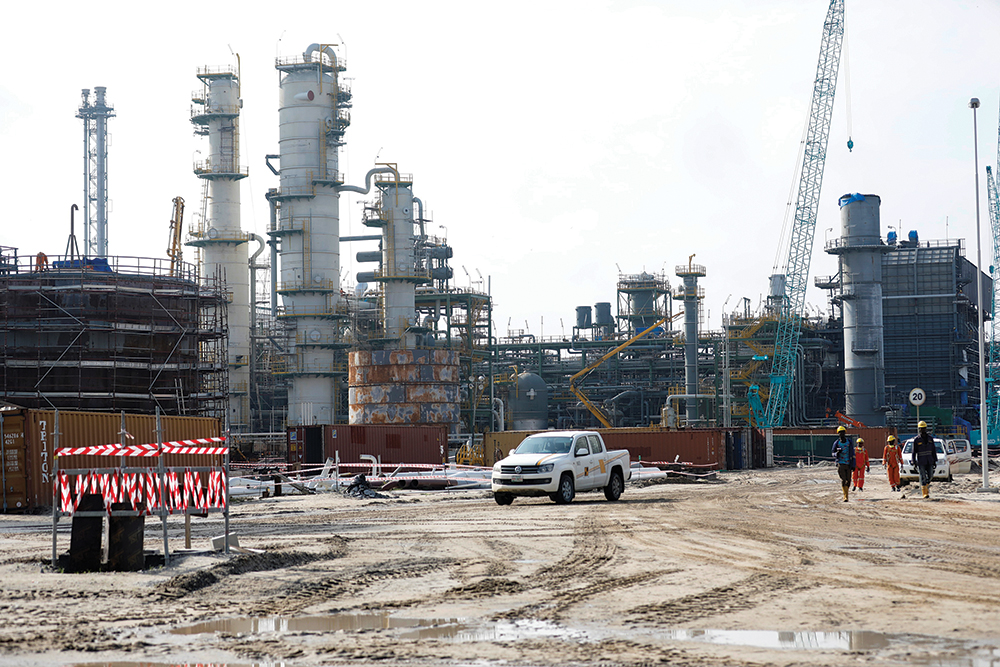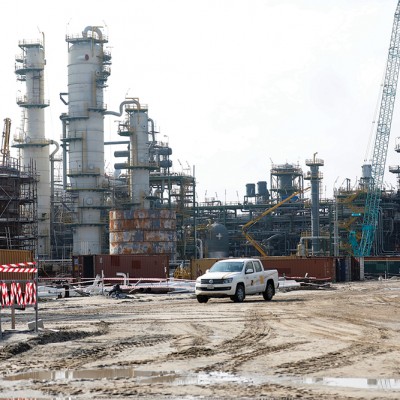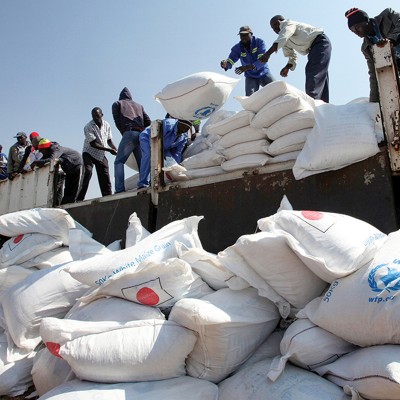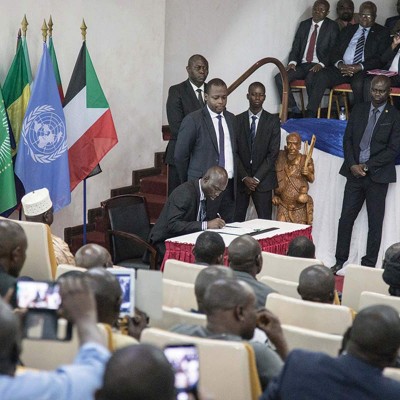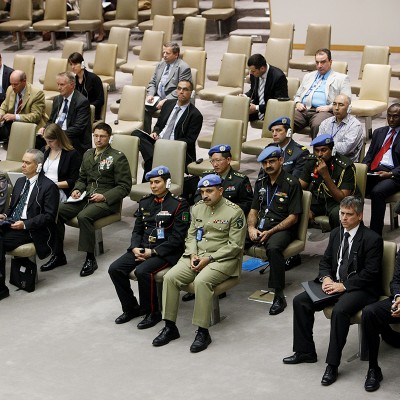Introduction
This article examines the basis of petroleum pipeline vandalism in the Niger Delta, against the backdrop of the high prevalence and incidences of such events in the region in recent years. Nigeria is an oil-endowed state and an example of a petro-dependent economy. Oil wealth and petroleum resources account for about 75% of Nigeria’s foreign exchange earnings.1 The petroleum sector is thus, justifiably, the mainstay of the economy.
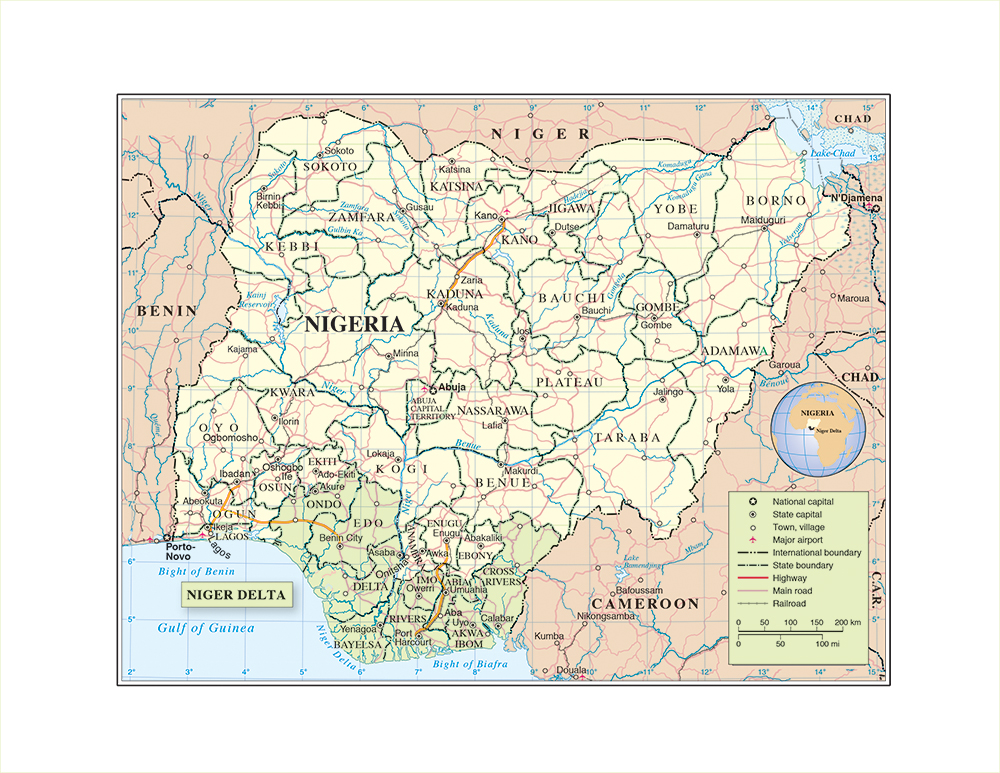
Although the petroleum sector has rightly been the backbone of Nigeria’s economy, it has paradoxically doubled as a centre for the primitive accumulation of wealth as well as a platform for petro-rentier crimes. Within this sector, petroleum rents have been the object of an opportunistic scramble by corrupt political elites and their counterparts. In effect, the significance of oil wealth in Nigeria has been contradictory: it has been a blessing as well as a curse, by generating both revenue and criminality. This seeming paradox resonates with the “resource-curse” thesis – which holds, among other things, that oil-rich nations have the tendency to squander their development prospects through the abuse or mismanagement of their oil wealth.2
Over the years, the Nigerian petroleum sector has presented many petro-rentier problems: corruption, armed criminality, violence, and so on. A critical dimension of the manifestation of the petro-rentier problem in Nigeria’s oil industry is the phenomenon of petroleum pipeline vandalism – the wilful and malicious destruction of oil and gas pipelines for economic, political or idiosyncratic reasons.
Incidences of petroleum pipeline vandalism in Nigeria have spiralled over the years. By way of example, such occurrences surged from 57 incidents in 1998 to over 2 500 incidents in 2008.3 This is rather ominous, considering the primacy of the petroleum sector vis-a-vis the sustenance of the Nigerian economy. The alarming occurrence and trajectory of petroleum pipeline vandalism in Nigeria has caught the attention of scholars and policymakers. There now exist many scholarly and policy-based studies on the various aspects of this subject.4
Nonetheless, most of the insights into petroleum pipeline vandalism in Nigeria has been inadequate in proffering a rigorous interrogation of the socio-structural basis of the phenomenon. What is more, the existing works have overtly concentrated on the political economy of organised crime and violence, with disproportionate emphasis on how the factors of “greed” and “grievance” provide impetus for the crimes. Beyond refreshing the aforementioned perspectives, this article adds the variable of “need” in an attempt to proffer a more robust and comprehensive account of petroleum pipeline vandalism in the Niger Delta. Thus, based on the factors of “need”, “greed” and “grievance”, this article provides a socio-structural analysis of the oil pipeline challenge. The article is a by-product of the author’s doctoral research, undertaken in 2015-2016, on oil pipeline vandalism in select communities of the Niger Delta.5 What is reported in this article derives substantively from the outcome of the study.
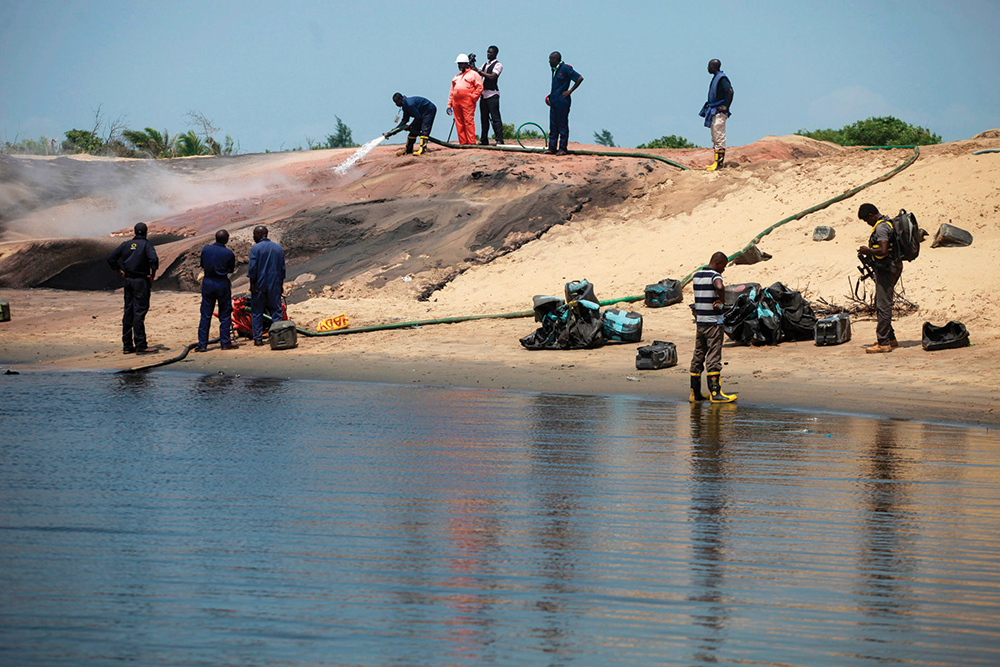
Conceptualising Petroleum Pipeline Vandalism
Petroleum pipeline vandalism has to do with the violation of the safety and functional integrity of a petroleum pipeline for political, economic or idiosyncratic reasons. This principally takes the form of sabotage, motivated by political reasons, or theft, motivated by economic need. Petroleum pipeline vandalism could also be informed by accidental occurrences, such as reckless agricultural or construction activities. The target of petroleum pipeline vandalism can be any aspect of the pipeline hardware or the product(s) that it carries. Essentially, oil pipeline vandalism has been associated with two important motivations: theft and sabotage.
Oil theft refers to the act of hacking into pipelines with the intent to steal product(s) thereof, either for sale or personal use. Oil theft involves the stealing of crude oil and its derivatives from pipelines through a variety of mechanisms, including illegal “bunkering” and fuel pilfering.6 Oil sabotage has been motivated by malicious intent, often associated with industrial uprising, militancy and terrorism, and can be physical or technical. Oil sabotage is physical when the prime targets are the critical physical components of the oil and gas infrastructure. On the other hand, it is mechanical when it involves damaging non-physical components of the infrastructure, such as digital and cyber resources. The incidences of pipeline vandalism in the Niger Delta typify physical and structural sabotage of the petroleum infrastructure.
Theoretical Premise: Structural Materialism
The incidences of petroleum pipeline vandalism can best be understood and explicated using the general structural paradigm of crime. Propounded by criminologists, the structural theory holds that crime is a creation of society and that people tend to take to crime principally as a consequence of existential conditions, which make criminal living not only attractive but also compelling.7 The structural materialism of crime is thus hinged on the understanding that “the structure matters”. This is to the extent that the structural underpinnings of a society determine both the character and dynamics of such a society. Hence, the problem of petroleum pipeline vandalism is fundamentally structural, both in origin and essence. The factors that are responsible for the phenomenon are rooted in the socio-structural foundations of society, especially the material conditions of the people, the state of the economy, and the socio-economic imperatives that arise.
Poverty in Nigeria creates a material pretext and incentive for survival or “need”-based criminality. This is evident in the prevalence of corruption and opportunistic living in the country. The spiralling unemployment rate in the country has added a dire complication to the situation, and the aforementioned situations fester within the operational environment of a petro-rentier state system. A petro-rentier state is one that is mischaracterised by an overdeveloped petroleum economy, which reproduces “a dynamic crowded political economy”, driving “competition for looted resources”.8 Embedded in this state system are sundry anomalies such as oil piracy, pipeline vandalism, oil bunkering and the illicit refining of petrol.
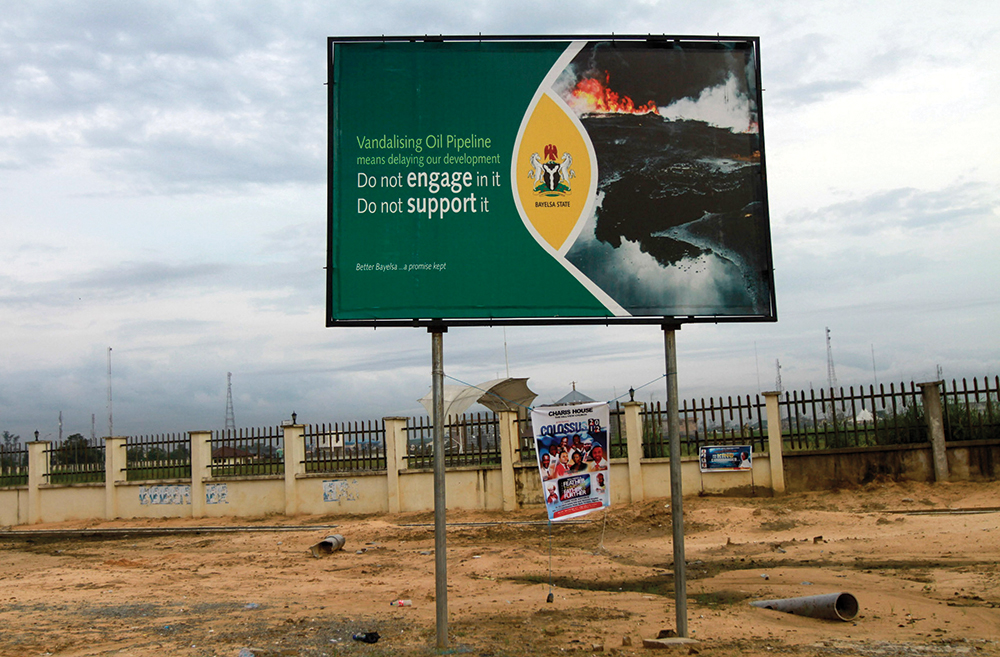
The tragedy of Nigeria’s petro-state syndrome is a crisis of unearned income. There is a fraught, intensive struggle for the acquisition and appropriation of petro-dollars among the people. The battle is desperate and opportunistic.In the absence of mediating state mechanisms to moderate this, what prevails is a wild race for the plundering of petroleum resources. The scenario creates a vicious cycle of criminality and violence.
Oil Pipeline Vandalism in the Niger Delta and Need, Greed and Grievance
The Need Factor: The social conditions of the Niger Delta present a context and pretext for oil-related crimes, among which is petroleum vandalism. The region is characterised by high levels of poverty. There is a high prevalence of material destitution, and basic amenities – such as potable water, schools and electricity – barely exist. The incidences of environmental degradation arising from oil pollution have exacerbated the situation by making it almost impossible for rural dwellers to engage in sustainable farming and fishing, which used to be their traditional mainstay. Furthermore, the occurrence of armed militancy in the region has created more insecurity, which impedes rural productivity and sustainable livelihoods.
This aggravated insecurity in the Niger Delta is exemplified in high rates of illiteracy, unemployment, poverty and livelihood failures. This scenario inescapably drives a desperate struggle for survival. The desperation is such that even criminal opportunities are explored in a bid to survive. Thus, the “need” factor in petroleum pipeline vandalism refers to the imperative of material subsistence and survival. The field research underlying this article revealed that a number of people in the Niger Delta who took to oil pipeline vandalism did so as a means of ensuring survival in adverse socio-economic conditions. Some youth who are involved in petty vandalism in the area are unemployed and, therefore, susceptible to opportunistic living. They took to petroleum pipeline vandalism as a means to an end. As a key informant stated: “…[W]e have learned to resort to self-help strategies in order to survive; our boys take to the act [pipeline vandalism] to make ends meet.”9
The need factor is certainly plausible in explaining acts of petty vandalism in the Niger Delta. It is, however, quite naive to assume that only the poor and needy indulge in oil pipeline vandalism. This brings us to the issue of greed as a critical driver of petro-pipeline vandalism.
The Greed Factor: The greed factor refers to the inordinate ambition of individuals to accumulate and amass wealth. This accumulative tendency is driven by crass materialism and ostentatious living. With a high premium placed on material aggrandisement in Nigeria, some people are inclined to take to crime – such as oil pipeline vandalism – in a bid to further their accumulation of wealth. The outcome of the field research showed that organised vandalism was perpetrated by the rich. The use of sophisticated hardware – such as barges, sea boats, road tankers, hoses, and so on, which could not easily be afforded by the poor – is an indicator that organised petro-pipeline vandalism is an elitist venture, too.
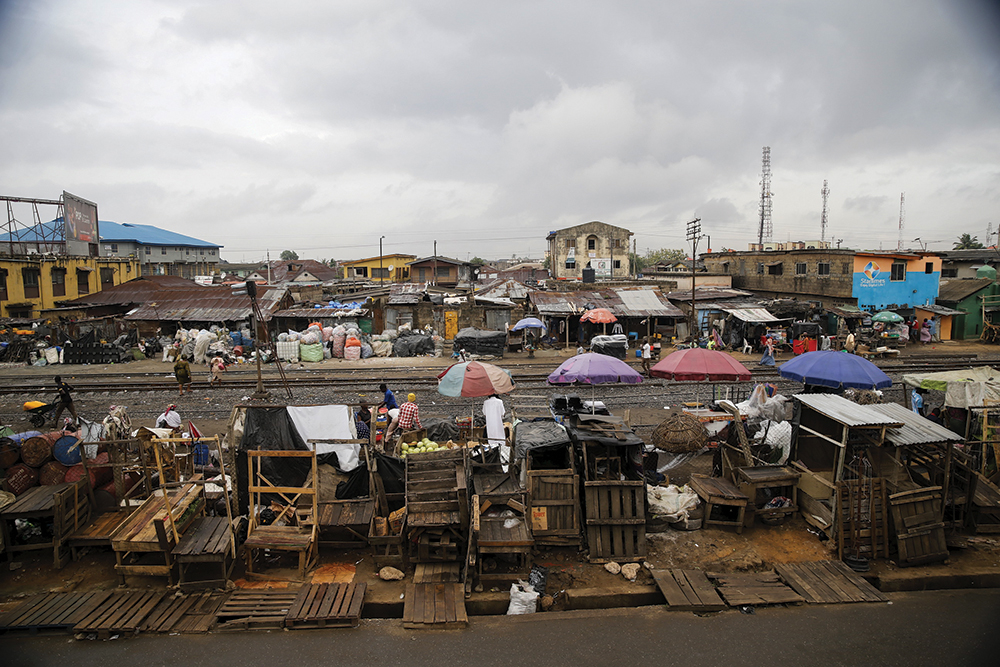
The field study also discovered a new and arcane pattern of petro-pipeline vandalism – that is, vandalism motivated by the quest for compensation and clean-up.10 Often, the oil multinationals award monetary compensation for environmental damage engendered by incidents of oil pollution and/or spillage. They also award “clean-up contracts” in the aftermath of such occurrences to restore the ecological safety of the areas affected by oil pollution. In view of this, disgruntled actors in Niger Delta communities have often connived with some criminal elements in the oil and gas industry to instigate pipeline vandalism for the purpose of prospecting monetary rewards in terms of ecological damage compensation or clean-up contract awards. This is an emerging practice that has added a new dimension to the challenge of pipeline vandalism.
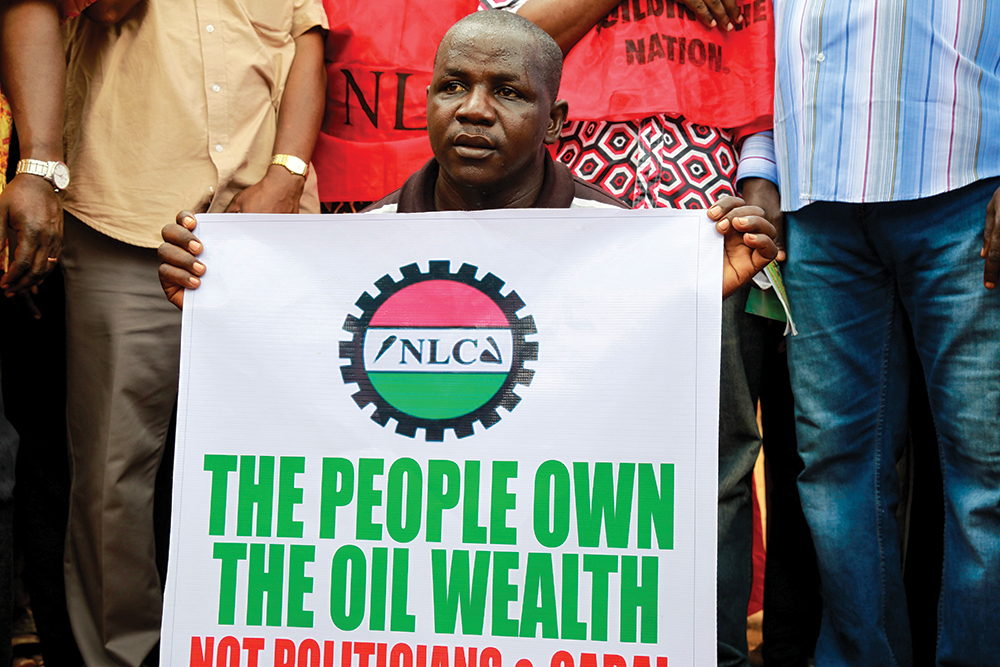
The Grievance Factor: Grievance explains the pattern of pipeline vandalism that is motivated by collective agitation in the context of militancy. In this regard, oil pipeline vandalism is an avenue for expressing grievances against the perceptibly hostile and indifferent Nigerian state and the oil multinationals. The field study confirmed the prevalence of this pattern of pipeline vandalism, particularly during the critical era of the Niger Delta crisis (1998/99–2009). Driven by populist grievances against the state and the oil companies over resource equity, militants in the Niger Delta took up arms and damaged pipelines and allied petroleum infrastructure. This scenario came to a head in the late 2000s, when oil production in the Niger Delta was almost grounded following the relentless destruction of petroleum infrastructure in the area. The exigencies of this situation forced the federal government of Nigeria into a sort of peace bargain with the irate militants – a deal that morphed into the Amnesty Programme.11 It must be pointed out that some militants involved in petro-pipeline vandalism were driven by motivations other than concerns for resistance or self-determination. In fact, a good number of them could have been influenced by survivalist and/or accumulative concerns disguised otherwise.
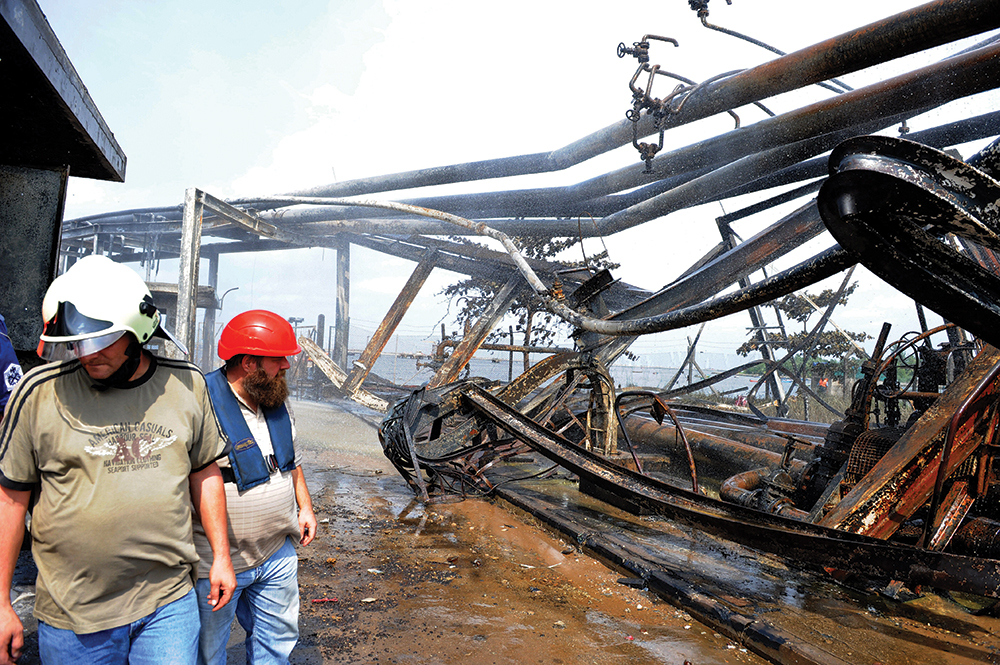
Contemporary trajectories of petroleum pipeline vandalism in the Niger Delta indicate that the phenomenon is becoming a flourishing economic crime. What is at issue is the scramble for petro-dollars though illicit means. So, while the kingpins indulge in organised oil theft via pipeline vandalism (oil bunkering) – often in collusion with elements of public security agencies and multinational oil companies – the petty vandals engage in the rudimentary breaking of pipelines to pilfer products. Of all the factors highlighted here as drivers of pipeline vandalism, the most salient is economic motivation. The need-greed-grievance schema of petro-pipeline vandalism is illustrated in Figure 1.
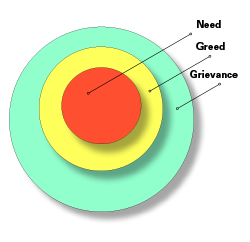
Figure 1 shows that the need factor (innermost circle) constitutes the most basic driver of pipeline vandalism. This is followed by the greed factor (middle circle), which is intermediary, and the grievance factor in the outer-most circle.
Nigeria’s petroleum sector has been a veritable arena for petro-rentier violence and criminality. Over the years, criminals, militants and state agents have abused the sector through systematic plundering and/or physical sabotage. There have been massive oil thefts as well as infrastructural vandalism, leading to enormous development costs. The phenomenon of pipeline vandalism is at the core of this systemic abuse. Underpinning the phenomenon of petro-pipeline vandalism is an underworld political economy based on the illicit exploitation of oil resources. As Katsouris and Sayne12 rightly observe:
Nigerian crude oil is being stolen on an industrial scale…– it is not entirely clear how much is exported. Proceeds are then laundered through world financial centres and used to buy estates in Nigeria and abroad. In Nigeria, politicians, government security forces, militants, oil industry personnel, oil traders and community members benefit to varying degrees along with organized criminal networks.
Hence, in its apparent dynamics of systemic degeneration, the Nigerian petroleum sector has presented a veritable context for rentier politics and crime. The petro-rentier challenge is sustained and reproduced by the prevailing culture of criminal opportunism, impunity and indulgence. Pipeline vandalism represents only one of the most critical dimensions of this systemic problem.
Conclusion
Since its advent in the 1970s, the petroleum sector has predominantly sustained the Nigerian economy. The sector has also been a centre for petro-rentier politics and corruption – more specifically crime and violence, including oil theft sabotage and pipeline vandalism. This article examined the phenomenon of petroleum pipeline vandalism in the Niger Delta from a socio-structural perspective that focuses on the factors of need, greed and grievance. The article posits that petro-pipeline vandalism has been variously motivated, depending on the socio-structural dynamics underpinning its occurrence. The characteristics of the Niger Delta social context have informed three patterns of petro-pipeline vandalism, represented in the “need-greed-grievance” schema. Need-based vandalism is driven by the imperative for subsistence and survival, while greed-based vandalism is associated with the quest for primitive accumulation of petro-wealth. Grievance-based vandalism, on the other hand, refers to pipeline vandalism as an avenue for the advancement of an environmental justice cause. What is common across all these patterns of petroleum pipeline vandalism is that each of them is driven by a socio-existential imperative. Whether it is “need”, “greed” or “grievance”, the implication is that the cause of any form of pipeline vandalism is essentially embedded in the socio-structural dynamics of its occurrence. The lesson in this respect is that any meaningful endeavour towards mitigating incidences of petro-pipeline vandalism must be predicated on a proper understanding of its structurally dynamic material roots. Such an effort must recognise and prioritise the gamut of organic and often intersecting social, economic, political and idiosyncratic variables that precipitate the occurrence. There is also a need to discourage criminal impunity by ensuring that the cost of indulging in a crime is much higher than its reward.
Endnotes
- Okoli, Al Chukwuma (2016) Petroleum Pipeline Vandalism and National Security in Nigeria, 2001–2012. PhD thesis submitted to the School of Post-graduate Studies, Nigerian Defence Academy, Kaduna, p. 1.
- Ibeanu, Okechukwu (2009) Oil, Environment and Conflict in Coastal Zone of West Africa (1–34). In Ibeanu, Okechukwu and Ibrahim, Jibrin (eds) Beyond Resource Violence. Abuja: Centre for Democracy and Development (CDD).
- Okoli, Al Chukwuma (2016) op. cit. pp. 112–113.
- See Ekwo, Unite (2011) Collaboration-based Management of Petroleum Pipeline Rights of Way in Nigeria. PhD thesis submitted to the School of Architecture, Planning and Landscape, Newcastle University, United Kingdom; and Evoh, Chijioke (2009) Green Crimes, Petro-violence and the Tragedy of Oil: The Case of the Niger-Delta in Nigeria. In-Spire Journal of Law, Politics and Society, 4 (1), pp. 40–60.
- Okoli, Al Chukwuma (2016) op. cit.
- Odalonu, Boris (2015) The Upsurge of Oil Theft and Illegal Bunkering in the Niger Delta Region of Nigeria: Is There Any Way Out? Mediterranean Journal of Social Sciences 6 (3), pp. 363–573.
- Alemika, Etannibi (ed.) (2013) The Impact of Organized Crime on Governance in West African. Abuja, Nigeria: Friedrich-Ebert-Stiftung, pp. 55–75.
- Katsouris, Christiana and Sayne, Aaron (2013) Nigeria’s Criminal Crude: International Options to Combat the Export of Stolen Oil. London: Chatham House, p. 1.
- Personal communication (field study), Oporoma, Bayelsa State, May 2015.
- Insights from the author’s field study; also corroborated by Asuni, Judith (2009) Blood Oil in the Niger Delta. Washington, DC: United States Institute of Peace.
- The Amnesty Programme is a stabilisation initiative designed to demobilise, demilitarise and reintegrate the youth who were engaged in the Niger Delta militancy. For specific details, see Okoli, Al Chukwuma and David, Nachanaa (2016) Militancy and the Dilemma of Petro-rentier Criminality in the Niger Delta. Online Journal of Arts, Management and Social Sciences, 1 (1), pp. 221–239.
- Katsouris, Christiana and Sayne, Aaron (2013) op. cit., p. 1.

